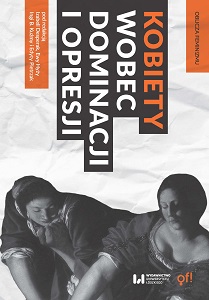Problem dyskryminacji kobiet wśród współczesnych chasydów dynastii satmar
On discrimination of women among contemporary samar Chassids
Author(s): Katarzyna Kornacka-Sareło
Subject(s): Gender Studies
Published by: Wydawnictwo Uniwersytetu Łódzkiego
Keywords: Hasidism; Satmar Hasidim; Jewish feminism; Dybbuk of S. An-sky: feminist perspective; Deborah Feldman
Summary/Abstract: The aim of the paper’s author was to present the ways of women’s discrimination in the contemporary hasidic “sect” called satmar hasidim (the ultra-orthodox community within Judaism). Although satmar hasidim live in the USA, Israel and Western Europe nowadays, they vehemently protest against any forms of assimilation, acculturation or integration into the non-Hasidic environment, and they behave as if time had stopped in the 18th and 19th centuries. As a result, the women belonging to such communities are deprived of almost any personal rights. For example, they are forbidden to learn (even the English and Hebrew languages), constantly being an object of men’s oppression in numerous spheres of life. The inhuman ways, in which satmar women are treated by male hasidim, have been described lately by Deborah Feldman – a young woman who left “the satmar” and decided to tell her story to the world. However, as it seems to the article’s author, leaving the group cannot be regarded as an easy task: Feldman will remain a regular Jewish woman – even against her will – in spite of the fact that now she is an emancipated female writer living in Berlin. In other words, she will return to her own culture code in the future, although she gained much popularity and became a highly-educated, well-known and popular person. Nevertheless, Feldman’s voice should be considered as very important as far as the next generations of hasidic girls are concerned. For, Deborah’s case can really give much hope and strength not only to the satmar women. Thanks to her memoirs some discriminated women will be able to have a faith in their both human and intellectual values, and they will also find it possible to gain personal autonomy and make their own choices as well as personal independent decisions concerning – especially – the most intimate spheres of life.
Book: Kobiety wobec dominacji i opresji
- Page Range: 57-68
- Page Count: 12
- Publication Year: 2019
- Language: Polish
- Content File-PDF

